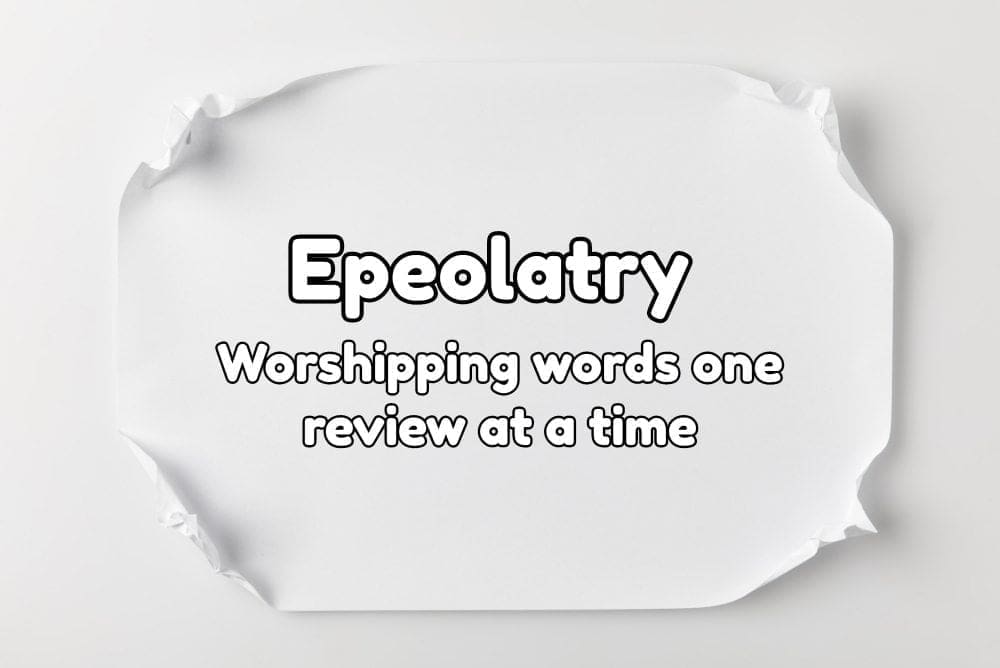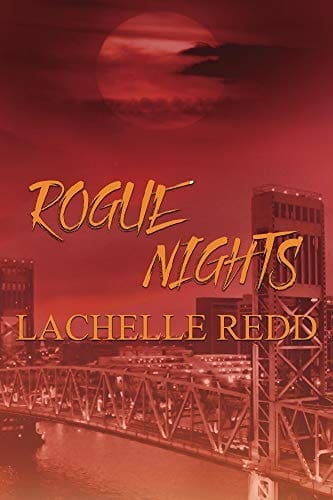Epeolatry Book Review: Rogue Nights

Disclosure:
Our reviews may contain affiliate links. If you purchase something through the links in this article we may receive a small commission or referral fee. This happens without any additional cost to you.

Title: Rogue Nights
Author: Lachelle Redd
Genre: Horror
Publisher: Independent
Release Date: October 22, 2016
Synopsis: Thomas Guerny is set to retire from the Jacksonville Police Department. He leaves a legacy of upstanding duty, honor, and excellence for his sons to follow. Ridge and Marcus are prime candidates from the academy and looking to make a name for themselves. Their first case, a stream of gruesome, bloody murders, threatens to destroy the city and a secret treaty. The Guerny family’s involvement in the treaty is threatened with exposure as Ridge tries to find the rogue that’s involved. With his brother’s jealousy getting out of hand, Ridge teams up with Nina from the special forensics unit. She understands his dilemma, and with her own secrets to garner, the two take on the case of the rogue and fight to save the city.
A society of werewolves lives in peace and secrecy among the normal humans in Jacksonville, Florida… until one of them breaks free from their den and goes rogue, terrorizing the city and eluding police and the secret task force assigned to the case.
Lead detective Thomas Guerny is retiring and has entrusted the case to his sons, recent graduates of the police academy. The emergence of the murderous wolf brings the Guerny family’s forbidden past to light, pitting brother against brother.
A town is ravished. Bodies are mutilated. Is the rogue the bartender? The reporter? One of the Guerny’s? No one is above suspicion. No one is immune to an attack.
Redd places us in sunny Florida with Detective Guerny leaving the force and his policemen sons, Marcus and Ridge, eager to grab the reins and take on their first case. We’re led on a clever whodunnit mystery and introduced to the police force, a maid, the staff at a strip club, reporters. The rogue could be any of them.
I found Redd’s characterizations of wolves credible. Descriptions of slaughters were horrendous and exciting! So many characters had motive and opportunity, but Redd kept us guessing and just when I thought I knew who the rogue might me, another possibility came into the story.
Redd’s enthusiasm was contagious and I wanted to learn more about the wolves like how was the appearance of a werewolf (before they turned into a werewolf) distinguished from a normal human? The story reads as if everyone looks human, but wouldn’t there be something different? It’s unclear exactly how one becomes a wolf. Rituals are mentioned, but not explained in detail. I wonder what elder wolves look like. We’re told that not all females can procreate – what determines if they can? I wanted some background on how the times of modern wolves’ forefathers was “nothing like today” as declared in an early chapter.
I was slightly confused with the usage of so many different terms (beast-monster-being-demon-lycan-lycanthrope-vamp) when a consistent “wolf” would have sufficed.
There were character name inconsistencies mid-book when Marcus was suddenly referred to as “Mark,” Tulane became “Tully,” and last names started to be used instead of the first names I became accustomed to.
I believe this story can be shortened a great deal. One way is to remove the telling-after-showing that Redd uses frequently. For example, after a character’s torn flesh exposes muscle and bone, readers don’t need told that she died in a painful and vile manner.
More showing instead of telling was needed in many instances when characters “became aware that something was wrong” or were “observing the surroundings.” It would have been fabulous if I were made more uncomfortable by being able to see the facial expressions or hear the racing heartbeats.
There’s a scene where someone is looking for a key card and in the next paragraph, they’re gaining access with it. Where was it found? Was a desk broken into? I feel like several opportunities were missed in the story to lay on the pressure and keep readers in suspense.
The strength in the dialogue wasn’t always there and conversations became shallow at times. The writing bounced between the usage of slang and word shortcuts and ramrod straight grammatical correctness.
There were several scenes that I wanted to slow down. One in particular involved a man who just witnessed a murder. The police took his statement and moved on. No consolation, no soothing words. I believe that even a hardened police veteran would have made some attempt to comfort the man, but we saw none of that as Redd rushed us through the scene.
Rushing the scene happened a few times. A character saw his decapitated mother and gunned-down father, but went on with his conversation without any reaction. A bar patron grabbed and threatened a female bartender without anyone jumping in or taking notice.
There were repetitious words within the same sentences, but the main overuse was with the word “dark.” A word search showed some form of the word was used on one hundred pages of the book. Not that every instance of it needs lopped off, but replacements ought to be substituted for the majority of them.
Along those same lines, spellcheck cannot replace good old-fashioned proofreading. In Rogue Nights, it would have helped with correct comma placement and choosing between homonyms. Words wouldn’t have been missed as in “the demon knew where lived” and a community would have been both human and inhuman, not “human and human.”
I like that Redd explains how werewolves can sense another’s blood flow and how it excites them as much as the full moon. This book will appeal to fans of werewolf and vampire horror.
We have a clear indication of how alcohol affects them throughout the story, but about two thirds of the way through, drugs show up a couple times. It felt like they were interjected without enough confidence that the alcohol alone portrayed what the author meant to convey.
There were too many times where my attention was drawn more to the mistakes in the writing than to the story. I give Rogue Nights 3 stars for plot, structure, maintaining conflict, and creating an ending that begs for a sequel.
Available on Amazon.









